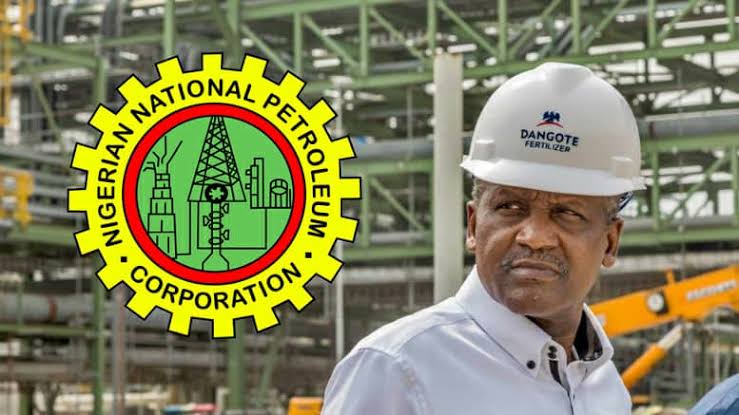The Nigerian National Petroleum Company Limited (NNPC) and Dangote Petroleum Refinery are on the verge of finalizing an agreement that will see crude oil sold to the Dangote Refinery in naira, with a corresponding buyback of refined products also in naira. This deal is expected to be concluded next week, according to Devakumar Edwin, Vice President of Oil and Gas at Dangote Industries Limited.
Edwin made this revelation during a live session hosted by Nairametrics on X (formerly Twitter). The discussions focus on easing Nigeria’s foreign exchange pressure by transitioning crude oil sales and refined product purchases to naira instead of dollars.
As part of the agreement, NNPC will station a team at the Dangote Refinery to monitor the production process closely. Edwin confirmed that NNPC has requested office space within the refinery to oversee operations and ensure the seamless supply and buyback of products, including petrol, diesel, and aviation fuel.
In August 2024, the Federal Government announced that crude oil sales to the Dangote Refinery and other local refineries would begin on October 1, 2024. This transition, led by Finance Minister Wale Edun, is part of a broader strategy to shift crude transactions to naira to bolster the local currency.
Aliko Dangote, President of the Dangote Group, pushed for the deal in naira, citing Nigeria’s severe foreign exchange shortages. While there were internal objections, Dangote agreed to the terms, acknowledging that while converting naira to dollars may lead to losses, he is willing to bear the cost to support Nigeria’s struggling economy.
Read also: NNPC expands global reach, ships LNG to Japan, China
In a surprising twist, Edwin revealed that over 95% of petroleum product importers and marketers are boycotting the Dangote Refinery, refusing to buy its competitively priced diesel and aviation fuel. Diesel prices at the refinery have dropped from N1,200 to N900 per litre, undercutting importers and leading to complaints being lodged with President Bola Tinubu.
Despite producing enough fuel to meet Nigeria’s demand, the refinery is facing local resistance, with most of its diesel and aviation fuel being exported due to low patronage from Nigerian marketers. The boycott has severely impacted sales, as the refinery struggles to dispatch even 29 tankers of diesel per day.
Despite these challenges, Edwin emphasized that the Dangote Refinery can meet 44% of Nigeria’s petrol demand and can load up to 2,900 tankers daily. However, due to the ongoing blockade by marketers, the refinery’s local sales have been stunted.
In a desperate move, petroleum product marketers wrote to President Tinubu, complaining that the low-priced diesel from the Dangote Refinery is disrupting their businesses. The letter, shared by Edwin, outlined their grievances, highlighting how the refinery’s competitive pricing is driving down profit margins for importers.






